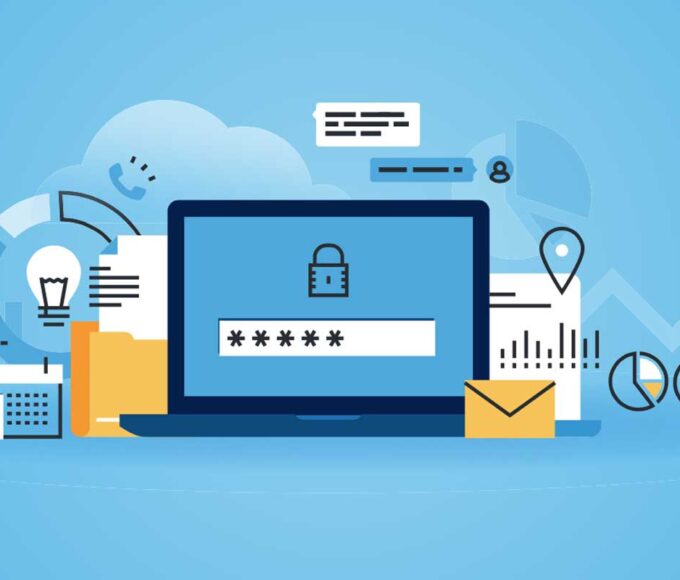 |
| Business Startup Checklist |
Business Startup Checklist
This article dedicated to helping you start your small business as quickly and easily as possible. In this section, we’ve listed the specific steps required to start your business in any State. Once you’ve formulated your business idea and know where you’ll obtain the money to fund your new startup, the next step is following our instructions for starting your business right the first time!
(toc)
1. Select a Name and Legal Structure
You basically have 4 choices when selecting a legal structure.
- Sole Proprietorship (form a Sole Proprietorship Now)
- Partnership (form a Partnership now)
- Limited Liability Company (LLC) (form an LLC now)
- Corporation or S-Corporation (form a Corporation now)
Business Naming Resources:
- Business Name Generator
- Domain Name Search from MyCompanyWorks.WS
2. Write a Business Plan
If you know your business idea is sound, the next step is to prepare some sort of business plan. Truth be told, most small businesses are started without any type of plan. Some of the greatest businesses in the world were started on a cocktail napkin. However, this is not the course we recommend, especially if you intend to receive a small business loan or other funding in the future.
To get an overall idea of the Business Planning process, you can visit the Small Business Administration’s (SBA) site dedicated to Business Plans. Don’t underestimate the power of a good business plan. It forces you to check your assumptions and can help guide you through the difficult startup phase of your business.
There are 3 basic types of business plans:
- A Simple Business Plan
- A Comprehensive Business Plan (done via book, web or software)
- A Professionally Written Business Plan
Explore all three options below to see which is the best fit for you.
1. A Simple Business Plan
A simple Business Plan can be no more than one page in length and is probably more than enough for most small businesses. However, don’t be fooled by its length; a well thought out simple business plan can be a positive force throughout the life of your business and most certainly during the startup phase.
There is simply no better resource than the book (also on Kindle) called “The One Page Business Strategy” (Amazon.com).
2. A Comprehensive Business Plan
If your company will be applying for business loans or lines of credit, a simple business plan may not be enough to satisfy the requirements of a bank or investors. Therefore, we’ve listed some great resources for those looking to build a more comprehensive business plan.
- LivePlan – web-based interactive constantly updated business plan.
- Recommended Book — Business Plans that Win $$$ (amazon.com)
- Bplans.com — sample business plans, calculators, tips and advice
3. A Professionally Written Business Plan
Wise Business Plans™ specializes in creating professionally written business plans for small business owners. Staffed with accomplished MBA writers, researchers, financial experts, and graphic designers, Wise Business Plans™ is a trusted partner for businesses across the globe. With an unmatched reputation, Wise Business Plans™ is committed to empowering their clients to make the best possible business decisions, boost company performance, and facilitate funding success. With special pricing and deals exclusive to MyCompanyWorks™ customers, you can now give your small business the competitive edge with a Wise business plan.
3. Obtain your Federal Employer Identification Number (FEIN)
If you are setup as a Corporation, LLC or Partnership (or a sole proprietorship with employees), apply for a Federal Employer Identification Number (FEIN) from the IRS. A FEIN will be necessary to open a bank account or process payroll.
4. Open the Company Bank Account
Select a bank and open the company bank account.
TIP: Contact the bank prior to opening the account to see what their specific requirements are to open a business checking account; some banks’ requirements are fairly simple whereas some banks’ requirements are extremely complex.
5. Lease Office, Warehouse or Retail Space (if not home-based)
Depending on your type of business (retail, office or warehouse), arrange for office space to be leased. Contacting a commercial realtor in your area can be helpful. Also, make sure to arrange for utilities and office furniture.
6. Obtain Licenses and Permits
A. Federal Permits
Depending on the type of business you are in, you may need a Federal license or permit.
Most businesses do NOT require a Federal license or permit. However, if you are engaged in one of the following activities, you should contact the responsible Federal agency to determine the requirements for doing business:
- Investment advising ( http://www.sec.gov )
- Drug manufacturing ( http://www.fda.gov )
- Preparation of meat products ( http://www.fda.gov )
- Broadcasting ( http://www.fcc.gov )
- Ground transportation ( http://www.dot.gov )
- Selling alcohol, tobacco or firearms ( http://www.atf.gov )
B. State Licenses
Some occupations and professions require a State license or permit. Laws vary from State to State, however, if you are engaged in one of the following professions, you should contact the responsible state agency to determine the requirements for your business:
- building contractors
- banks
- insurance carriers
- physicians
- appraisers
- accountants
- barbers
- real estate agents
- auctioneers
- private investigators
- private security guards
- funeral directors
- bill collectors
- cosmetologists
State Licenses and Permits based on products sold.
Some state licensing requirements are based on the product sold. Contact your state licensing authorities to determine the licensing requirements of your business. For example, most states require special licenses to sell:
- liquor
- lottery tickets
- gasoline
- firearms
TIP: Most people engaged in the types of business that require a special State License or Permit are already aware of the requirements (i.e. an accountant is familiar with the licensing requirements for accountants).
C. Sales Tax Permit
If your company sells physical products within the state where it does business, you may have to collect and pay sales tax. This is usually accomplished by obtaining a State Seller’s Permit or Resale Permit.
TIP: Many service businesses that do not sell a physical, tangible product are NOT required to collect sales tax, ask the State taxation agency for details/clarification.
D. Business License
Most Cities or Counties require you to obtain a business license, even if you operate a home-based business. This is a license granting the company the authority to do business in that city/county.
Do I Need a Local Business License?
If you intend to operate a business from your home or an office, then more than likely a local business license will be required. The purpose of a local business license is to authorize your company to do business in your particular city or county.
If you are not really operating a business and are simply using your corporation or LLC to hold assets, property, etc., or are keeping it “on the shelf”, then a local business license will more than likely not be required. Contact your local business licensing office for clarification.
How Do I Get My Local Business License?
Business licenses are typically issued at the City level from your City Hall. If your intended place of business is not within city limits, then your business license will be issued by the County.
Getting a local business license can be a complicated task. There are over 19,000 separate licensing jurisdictions in the United States alone and each has its own particular licensing requirements. Not to mention the hours spent on the phone chasing down the right department, getting the right forms, etc.
Get Your Local Business License Forms Online Now with the Business License Compliance Package!
Using the online Business License Wizard from our partner Business Licenses LLC, you’ll be able to:
- Determine the licensing requirements for your company by answering a few simple questions.
- View and download all the necessary forms (fillable) and instructions in a simple online Dashboard.
- View links and contact information for each licensing authority.
- Save hours of research, phone calls and government red-tape.
NOTE: This package will cover one business location, additional locations are an additional fee. Also note that some industries have unusually complicated licensing (agriculture, daycare, explosives, firearms, marijuana, gaming, etc.) for which you can upgrade your package to custom assistance from Business Licenses LLC if necessary.
7. Hire Employees (if applicable)
If you intend to hire yourself or others as a full or part-time employee of your company, then you may have to register with the appropriate State Agencies or obtain Workers Compensation Insurance or Unemployment Insurance (or both).
8. Set up an Accounting and Record-Keeping System
Setup your Accounting and Record-keeping system and learn about the taxes your new company is responsible for paying.
Company documents generally are required to be kept for 3 years, including: a list of all owners and addresses, copies of all formation documents, financial statements, annual reports, amendments or changes to the company. All tax and corporate filings should be kept for at least 3 years.
9. Obtain Business Insurance
There are many types of insurance for businesses but they are usually packaged as “General Business Insurance” or a “Business Owner’s Policy”. This can cover everything from product liability to company vehicles. A decent policy can run as little as $300/year and offers a great extra level of protection.
10. Systemize and Organize
Prepare the business as if someone needed to take it over and run it for you. This means have a method to process orders, pay bills, pay employees, pay taxes, maintain your permits, etc. Basically, try to make the operational aspect of the business as automated and efficient as possible so you can concentrate on growing your business.
11. Develop a Business Identity
Order business cards, letterhead and promotional materials for your business. A professionally created logo can make your business look professional and established.
What is Business Identity?
Take three simple steps to form an effective business identity.
A memorable business identity is critical if you want to compete in your industry. Larger corporations spend untold dollars on research and design for business names, logos, and trademarks because they separate them from their competitors. An effective business identity is more than just a good name, logo, and business cards. Your company’s identity is also defined by how you market products or services and deal with your clients.
The Business Name_________
Choosing a Name
When you hear of some entrepreneurs obsessing for hours, even days or weeks about their business name, it may seem like a waste of time. But the truth is, a successful business is going to be known by that name for a long time. What’s in a name? A lot! Your business name is possibly the first thing a potential customer learns about you. Before you meet a customer for the first time, an impression has already been made, so selecting the right business name is actually a very important decision. Think about it as a customer. If you’re looking for a company to work on your computer, would you rather call on “Bob’s Computer Consulting” or “CompFast Solutions Corporation”? Most consumers compare business names and choose the one whose name identifies most closely with their needs. You wouldn’t think your electronics could be repaired by “Larry’s Auto World”, right? Or if you’re looking for a business supplier, you might go with “Bloomberg Data Solutions Inc.” over “Mike’s Computer Service”. Your business name is worth taking the time and research to make a choice you can live with and will fairly represent your organization.
Things to Consider
Choosing a business name can be fun! Follow the steps below and you’ll be on your way to a memorable business name:
Select a name that is easy to understand and remember:
You’ll want your business name to be shared easily by word-of-mouth, so make sure it is easy to understand and repeat. You can test the name by saying it out loud and asking family and friends to say it too. It’s good to hear how other people would say your business name. Unusual names can be a challenge, but may also become a vital part of your marketing strategy if it’s easy to remember. Shorter names are easier to remember and less likely to be confusing to your market.
Choose a name that can survive the growth of your company:
As in the example above, if you start out as a VCR repair company and eventually broaden out to repair DVD players, sell DVD’s or offer upgrades; then the name VCR World Inc. won’t do you any good. Choose a name that is broad enough to give your business growing room and narrow enough to retain the power to communicate its focus. Also, make sure the name will outlast current fads or trends. What will happen to “Jan’s Radical Clothing Design” in 5-10 years? It’s likely that radical will either have changed meanings or will sound
hopelessly dated.
Make your business name unique:
As a business owner, you’ll be required to file legal forms indicating your business intent and the fictitious name you’ve chosen. Your name must also be unique since two businesses in the same geographic area cannot legally operate under the same name. It’s a good idea to prepare a list of three or four alternate business names when you go to file locally or incorporate your business.
Test it: Try it out with potential customers, friends, neighbors, or whomever. Say it out loud, act like you have to answer the phone saying “Thanks for calling COMPANYNAME”. Does it sound right? Does it make sense? Does it convey what you do or want to impress upon people?
Business Naming Resources
- Business Name Generator (100% Free)
- Search for a Domain Name with MyCompanyWorks.ws
TIP: Searching for domain names also helps identify general business name availability.
The Logo
Along with a timeless and memorable business name, an effective logo can do wonders to brand your company in the minds of your customers. The right professional logo design can leave an impression even when a customer doesn’t remember your company’s name. Some businesses are known only by their logos, like the McDonald’s “Golden Arches” or the Nike “Swoosh”.
Many first-time entrepreneurs make the mistake of either having no logo at all, or have a logo, but it isn’t professionally designed and looks homemade. Customers are drawn to products and services that are well-presented by an established brand. It’s a very small investment in any highly successful business, and it’s worth hiring a pro if you don’t know someone who can design a logo for you.
Design your logo now with our simple and creative Online Logo Maker
The Trademark
A Trademark is important for protecting your company name and logo and distinguishing your products and services from other providers’ products and services. Registering for a Trademark offers federal protection, as opposed to local and state registrations which only protect you in the state where you register.
12. Get the Word Out (Marketing)
Now that you’ve set-up the company for success, you need to get the word out. Create a marketing plan for your products and services that targets your ideal customer.
Few things in business are as important as marketing and sales. This section is dedicated to helping the small business effectively market and sell its products and services.
Marketing vs. Sales — What’s the difference?
Many times, marketing and sales are intertwined to such a degree that it’s hard to differentiate between the two. There are, however, some important differences.
Marketing is everything your company does to reach and persuade potential customers. It consists of the measures you use to find and convince your prospects that you are the company for them. It’s the message that prepares the prospect for the sale. Marketing includes advertising, public relations, brand marketing, direct mail, etc.
Sales is everything your company does to “close the sale”, sell the product or get a signed agreement or contract. The sales process includes interpersonal interaction and is often done via one-on-one meetings, cold calls, networking or sometimes via your company’s web site.
In simple terms, marketing is identifying and finding people that may need your product and service while sales is showing or convincing these people why your company is the best to provide it.
For example, obtaining phone numbers or addresses of people who are known to be interested in your product is the marketing aspect, while actually calling and convincing them to buy is the sales aspect.
Marketing 101
Marketing is the set of activities used to:
- Find potential customers.
- Get your potential customers’ attention.
- Motivate them to buy.
Marketing theory is made up of the 5 P’s.
- Product — the product or service you are offering your customers.
- Positioning — how your customer perceives you in relation to your competitors.
- Place — the method you make your product or service available (storefront, retail, web, etc.).
- Price — the amount charged for the product or service, or the value exchanged.
- Promotion — promotion is the mix of advertising, personal sales, direct mail, etc. your company uses to pursue its marketing objectives.
How do I Get Started Marketing My Business?
1. Identify Your Ideal Customer
First, you need to identify your ideal customer. This means learning as much as possible about the type of person (or company) that would be interested in your company’s product or service. This is generally called “market research” and you can begin by asking yourself the following questions:
- Who are my current and potential customers?
- Where do they live?
- What is their age and gender?
- What is their average income?
- What do they think of my business?
- Do they think my product or service is a good value?
- How does my business compare to my competitors?
- Why would they buy my product or service as opposed to my competitors?
- How do my customers think my business compares to my competitors?
Actually, small business owners do “market research” every day by receiving returned items, dealing with angry customers, looking at competitors’ prices, etc. However, answering these questions is valuable in forcing you to think like your customer. With that knowledge, you can begin to focus on finding your ideal customer.
2. Develop a Marketing Plan
A marketing plan can contribute greatly to the success of your small business. Like a business plan, a marketing plan forces you to check your assumptions and analyze your products and services, competitors, pricing and promotion. This is helpful, especially to those starting out. Doing a marketing plan on your own without guidance can be a complicated task. The good news is there is now software to automate the difficult task of putting together a marketing plan.
From the makers of Business Plan Pro comes Sales and Marketing Plan Pro.
Sales and Marketing Plan Pro allows even the most inexperienced marketer to create and implement a marketing plan and includes “wizards” to set up your marketing plan step-by-step. It also includes over 70 sample marketing plans as well as glossaries to help you learn “the lingo” of marketing. We highly recommend this software, especially if you are new to marketing and sales.
3. Measure Results and Adjust
After you’ve created and implemented a marketing plan, you must measure the results and adjust accordingly. For many small businesses, this is usually noticing “sales are up”. However, we recommend you measure specifically which methods are producing the most sales per marketing dollar spent. A good marketing plan will include methods for measuring results.






